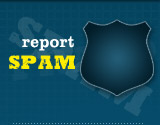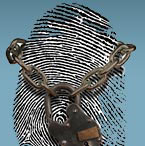Dumpster Diving Identity Theft - the Value of Your Trash
For many of us, there is one time of the month that we
all loath - that moment that calls for us to pay the bills. After going through the task of just who gets
how much of our money, many of us simply discard the bills in an irresponsible
manner, feeling that they have no purpose now that the balance has been
paid. This is one of the biggest
mistakes you could ever make, one that is likely to make you an unfortunate
victim of identity theft.
The truth is that those very documents you despise
often contain critical details, personal information that consists of your
name, address, credit card and bank account numbers. After throwing the paperwork in your trash
bin, this sensitive information waits to be collected by a city garbage truck.
Your Trash is an Identity Thief's Treasure
So what's the problem?
No one will stoop as low as sifting through your trash in search of
meaningless bills that you already paid, right?
Think again! Pride and morals
should never be tied to an identity thief.
If one of these desperate criminals happens to snatch up an entire bag
of trash that contains all of the bills you just paid, they have literally
struck the identity theft lottery. The
information you took for granted will give them all the ammunition needed to
open up new credit cards in your name and possibly access funds in your bank
account.
Since many individuals will throw away those nagging
credit card approval letters, it is very easy for a dumpster diver to respond
to them, provide the company with a new address and instantly receive credit in
your name. If your credit is decent, a
thief will be instantly approved and quickly receive a card in the mail. From there, they are liable to rack up
thousands of dollars in debt, balances that you may not be aware of for
months.
A public dumpster or a personal trash bin can be an
absolute gold mine for the aspiring identity thief. Many times they may stumble upon important
documents carelessly discarded by hospitals, accounting firms and profitable
corporations. When armed with this
information, a criminal is capable of starting a new life of their own while
bleeding their victims dry of funds.
Dumpster diving has proved so beneficial, that some
identity thieves have formulated organized crime rings to carry out the
act. It takes the authorities that much
longer to pinpoint the suspected perpetrators when these crimes are committed
in filthy dumpsters and residential trash bins.
While it is very clear that this isn't the most sophisticated or
glamorous type of identity theft, those facts do nothing to reduce the damage
suffered by the victims.
How to Protect Yourself From Dumpster Diving
•
-Never discard documents containing information
such as a Social Security number, driver's license number, or bank account
number into a public trash bin.
•
-Always shred important documents you choose to
discard as opposed to crumbling the paper and throwing them in the trash.
•
-Be sure to thoroughly cut up all old credit and
debit cards so that the information is not legible
Dumpster diving is fairly easy to
prevent. It basically consists of taking
the extra steps to make sure your personal information is properly disposed.
A little tedious work from the start can
save you from the expensive headache related to identity theft.



